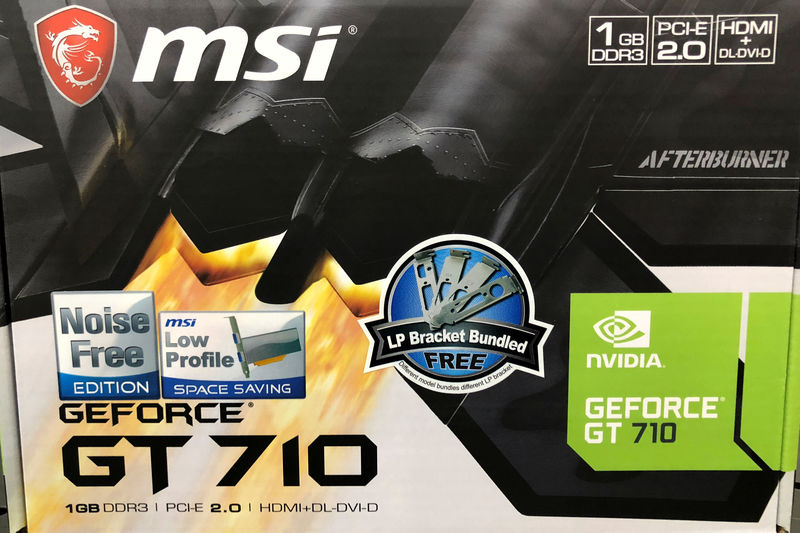By Munsif Vengattil
(Reuters) - Nvidia Corp (O:NVDA) on Thursday joined rival Intel Corp (O:INTC) to predict strong demand for chips used in data centers after its third-quarter revenue and profit beat market expectations.
The company's gaming chip business powered the quarterly results, but it said it expects the biggest revenue generating unit to be impacted in the fourth quarter by seasonal weakness for gaming cards used in personal computers and laptops.
The strong quarterly performance by the top chipmakers comes as a relief to the industry that is reeling under slowing demand due to a prolonged U.S.-China trade war.
Nvidia said it expects data center growth to come from a rise in conversational AI, the ability for computers to engage in human-like dialogue, and inference, the process of using an algorithm for tasks such as translating audio into text-based requests.
"Like Intel, Nvidia saw big demand from its hyperscale customers, undoubtedly driven by machine learning training and inference needs," Patrick Moorhead of Moor Insights & Strategy said.
The company in March outbid Intel to buy Israeli chip designer Mellanox Technologies Ltd (O:MLNX) for $6.8 billion, in a deal that is expected to help the firm boost its data center and AI business.
It will return to buying back stock after closing the acquisition, which it expects in the early part of next year, Nvidia said on Thursday.
Graphic: NVIDIA QUARTERLY REVENUE TREND png, https://fingfx.thomsonreuters.com/gfx/editorcharts/NVIDIA-RESULTS/0H001QXJ69DM/eikon.png
The company expects fourth-quarter revenue of $2.95 billion, plus or minus 2%, while analysts on average were expecting $3.06 billion, according to IBES data from Refinitiv.
In the reported quarter, revenue from gaming business fell 6% to $1.66 billion, but beat analysts' estimate of $1.54 billion, according to FactSet.
Total revenue fell 5% to $3.01 billion, but was above expectation of $2.91 billion. Excluding items, it earned $1.78 per share, above estimates of $1.57.

Shares of the company were marginally down in volatile trading.